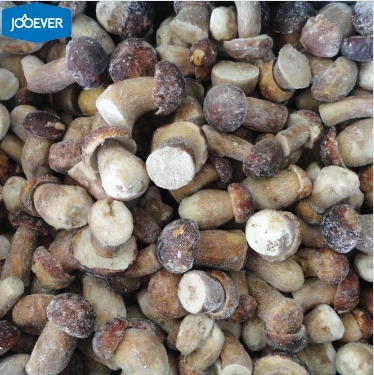Your reliable partner for frozen foods
Vegetables are a crucial part of a balanced diet, providing essential vitamins, minerals, and antioxidants that support overall health. However, there's a common concern about whether frozen vegetables lose their nutrients compared to their fresh counterparts. This article explores the impact of freezing on the nutritional value of vegetables, providing you with a clear understanding of whether frozen vegetables are a nutritious choice.
To understand the nutritional differences between fresh and frozen vegetables, it's important to look at how vegetables are processed. Fresh vegetables are often harvested, transported, and stored for several days before reaching consumers, during which time nutrient levels can decline. In contrast, frozen vegetables are typically harvested at peak ripeness and quickly frozen, which helps preserve their nutrient content.
Several studies have compared the nutrient levels in fresh and frozen vegetables. These studies generally find that frozen vegetables can be just as nutritious as fresh ones. Key nutrients to consider include vitamins (such as Vitamin C and Vitamin A), minerals (like iron and calcium), and antioxidants, all of which are essential for maintaining health.
The process of freezing vegetables involves several steps designed to maintain their quality and nutritional value:
Vegetables are picked at their peak ripeness, when they are most nutrient-dense.
Before freezing, vegetables are briefly boiled and then plunged into ice water. This process helps to deactivate enzymes that can cause nutrient loss and spoilage.
The vegetables are rapidly frozen at very low temperatures, which helps to lock in their nutrients.
Each of these steps plays a crucial role in preserving the nutrients in frozen vegetables.
Scientific studies provide valuable insights into the nutritional content of frozen vegetables. For example:
Some studies show that while Vitamin C levels in fresh vegetables can decrease significantly during storage, the levels in frozen vegetables remain relatively stable.
Frozen vegetables generally retain their Vitamin A content well, although there can be slight variations depending on the type of vegetable and the freezing method used.
Minerals such as iron and calcium, as well as antioxidants, are typically well-preserved in frozen vegetables.
These findings suggest that frozen vegetables can be a nutritious option, often retaining comparable nutrient levels to fresh vegetables.
Several factors can influence the nutrient retention in frozen vegetables:
Time from Harvest to Freezing: The shorter the time between harvesting and freezing, the better the nutrient retention.
Blanching Process: While blanching helps preserve color and texture, it can lead to some nutrient loss, particularly of water-soluble vitamins. However, this loss is generally minimal compared to the overall benefits of freezing.
Storage Duration and Conditions: Proper storage is crucial. Keeping frozen vegetables at a consistent, low temperature helps maintain their nutrient content over time.

Frozen vegetables offer several advantages:
Frozen vegetables are pre-washed, pre-cut, and ready to use, saving time and effort in meal preparation.
Frozen vegetables have a longer shelf life than fresh ones, which helps reduce food waste.
Freezing allows you to enjoy a variety of vegetables year-round, regardless of the season.
To get the most nutritional value from frozen vegetables, consider the following tips:
Proper Storage: Keep frozen vegetables at a constant temperature of 0°F (-18°C) or lower to maintain their quality.
Cooking Methods: Steam or microwave frozen vegetables instead of boiling them to minimize nutrient loss.
Incorporate Variety: Use a mix of fresh and frozen vegetables in your diet to ensure a wide range of nutrients.
Frozen vegetables are a convenient and nutritious option that can be just as healthy as fresh vegetables. By understanding the freezing process and considering factors that affect nutrient retention, you can make informed choices about incorporating frozen vegetables into your diet. Whether fresh or frozen, the key is to enjoy a variety of vegetables to support a healthy, balanced diet.